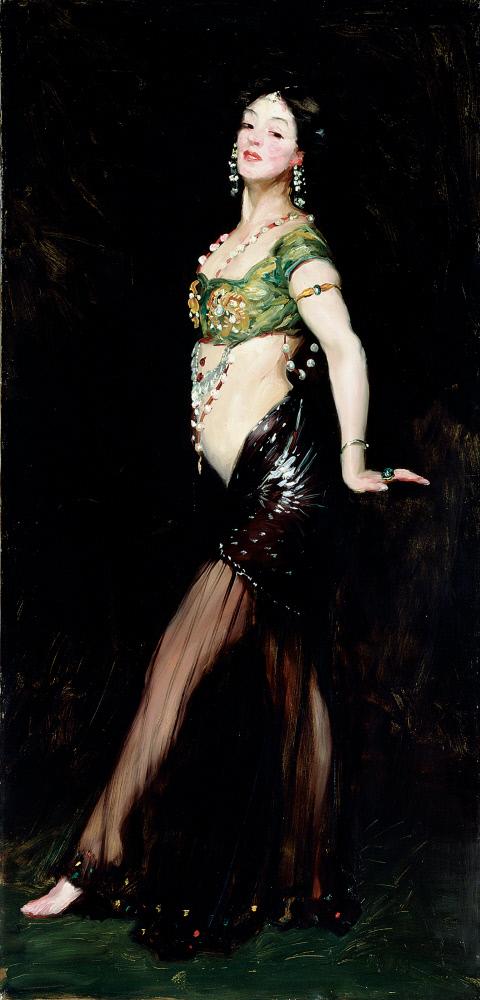Noble Dreams, Wicked Pleasures
Orientalism in America, 1870-1930
June 11–September 4, 2000

Robert Henri
Salome
1909
Oil on canvas
77 ½ x 37 in. (196.9 x 94 cm)
John and Mable Ringling Museum of Art, Sarasota, FL
Noble Dreams, Wicked Pleasures traces America's fascination with an "exotic" Middle East. Beginning with paintings by Frederic Edwin Church, William Merritt Chase, and John Singer Sargent, the exhibition extends to Orientalism's widespread dissemination in popular culture, including films like The Sheik starring Rudolph Valentino. Some ninety objects illustrate the associations conjured up by the "Orient" – Turkey, the Holy Land, Egypt, and North Africa – in the popular imagination of turn-of-the-century America. Paintings range from spiritual landscapes of the Holy Land to richly-painted fantasies of sensuality and adventure. Imaginary visions of a Middle East filled with palm trees, harem girls, spice merchants, and desert oases also made their way into the decorative arts of Louis Comfort Tiffany, the music of Irving Berlin, and the midways of world's fairs. Fabulous displays of costumes, furniture and decorative items, advertisements, Shriner memorabilia and photographs demonstrate the penetration of Orientalism into everyday life. A specially-designed movie theater shows clips from The Sheik, Thief of Baghdad, and other films of the period. Noble Dreams, Wicked Pleasures is organized by the Clark and will travel to the Walters Art Gallery in Baltimore (October 1 to December 10) and the Mint Museum in Charlotte, North Carolina (February 3 to April 22). Guest curator of the exhibition is Islamic art historian Holly Edwards, who will give a free introductory lecture on Sunday, June 11, at 3:00 p.m.
To help our Friends and visitors get the most out of this remarkable exhibition, the Clark has produced an introductory video. In addition, a brochure about the exhibition and an activity pamphlet for children will guide visitors of all ages through the show. Guided tours of the exhibition will be offered daily at 11:00 a.m. and 2:00 p.m. in July and August. Please note that the introductory video will not be shown during other auditorium programs.